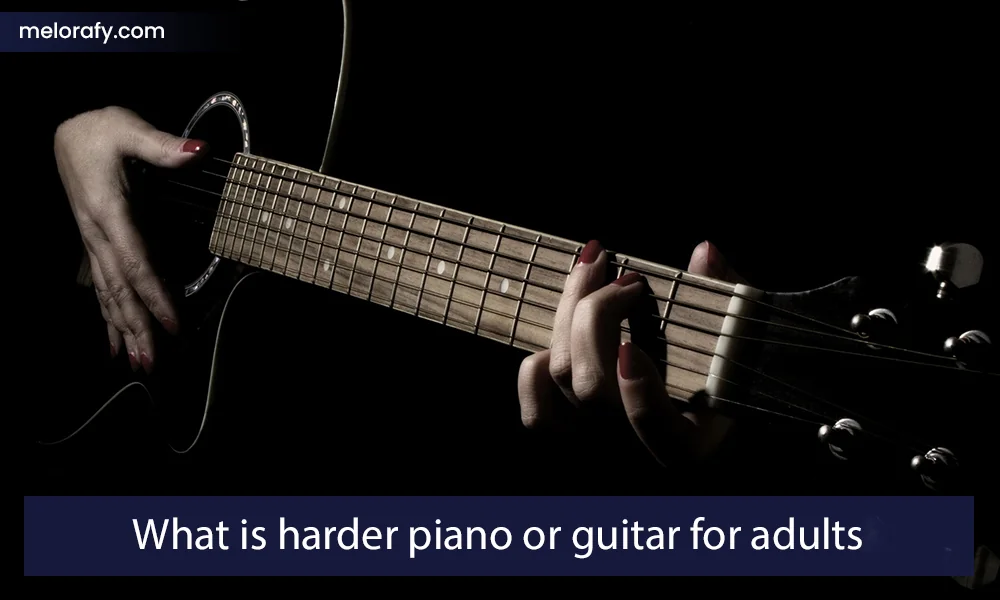
What is harder piano or guitar for adults
Embarking on a musical journey as an adult can be a thrilling and rewarding adventure. Many adults find themselves at a crossroads, however, when choosing between learning the piano or the guitar. This article aims to shed light on which instrument might be more challenging for adult beginners and why, covering aspects such as the learning curve, physical demands, and the practicalities of practice time and space.
Learning a musical instrument as an adult is a commendable endeavor that can enrich your life in countless ways. It enhances cognitive abilities, alleviates stress, fosters creativity, and offers a rewarding hobby. The piano and guitar are two of the most popular instruments among beginners due to their distinct sounds and roles in music. But which one is harder to master for adults? Let’s dive in.
The Piano: A Harmonious Challenge
The Basics
The piano, with its comprehensive range of notes and intricate key layout, offers a visual and tactile representation of musical theory. Beginners must learn to navigate 88 keys, understand chord structures, and read music notation, which can be daunting at first.
Coordination and Technique
Playing the piano requires independent hand coordination from the outset. Learners must develop the ability to play different rhythms and melodies simultaneously, a challenge that demands patience and practice.
Space and Investment
Pianos are large and often expensive, making them a significant investment in terms of both money and space. Digital keyboards offer a more accessible option, but the feel and sound may differ from an acoustic piano.
![]()
The Guitar: Strumming Through Difficulties
Getting Started
The guitar has its own set of challenges, including mastering chord shapes and finger positioning. The physical aspect of pressing down strings can be painful for beginners, requiring time to build calluses.
Learning Curve
While basic chords and strumming patterns can be learned relatively quickly, advancing to more complex techniques like fingerstyle playing or soloing requires significant practice and skill development.
Portability and Versatility
The guitar’s portability is a significant advantage. It is suitable for a variety of musical styles and settings, from campfires to concert stages. Its versatility makes it appealing to many learners.
Comparing the Learning Experiences
Practice Time and Commitment
Both instruments require dedication and regular practice to achieve proficiency. The guitar might offer a quicker sense of accomplishment with basic chords, whereas the piano provides a more immediate understanding of musical theory.
Physical Demands and Challenges
The physical demands of each instrument differ significantly. Pianists must develop fine motor skills and hand independence, while guitarists face the challenge of finger strength and dexterity.
Accessibility and Practicality
Consider your living space, budget, and lifestyle when choosing an instrument. Digital pianos and keyboards can mitigate some of the space and cost concerns associated with pianos, while guitars offer unmatched portability and ease of entry.
![]()
Making the Choice: Piano or Guitar?
Deciding whether to learn the piano or guitar boils down to personal preference, musical interests, and practical considerations. Consider attending introductory lessons for both instruments or renting them before making a final decision. Remember, the journey of learning an instrument is deeply personal and should align with your passions and lifestyle.
Can Adults Truly Learn an Instrument?
Absolutely. While children may absorb new skills like sponges, adults possess discipline, patience, and motivation. These qualities are invaluable in the learning process, often allowing adults to progress at a surprisingly quick pace.
How Much Practice Is Required?
Consistency is key. Even 15-30 minutes of focused daily practice can lead to significant improvements over time. The quality of practice often outweighs quantity, making it important to practice smartly and efficiently.
Is Reading Music Necessary?
While not strictly necessary, especially for guitarists who can rely on tablature, reading music opens up a broader understanding of musical theory and repertoire. It’s a skill that, once learned, can significantly enhance your musical journey.
What Should I Consider When Choosing Between Piano and Guitar?
Reflect on the type of music you love, the goals you have (e.g., solo performance, accompanying singers, joining a band), and practical aspects such as space, budget, and portability. Your personal connection to the instrument is also crucial; choose the one that speaks to you more.
Can Learning an Instrument Improve My Health?
Yes, studies have shown that learning and playing music can improve mental health, reduce stress, enhance cognitive function, and even increase memory capacity. It’s a wholesome activity that nurtures both the mind and soul.
Overcoming Challenges: Tips for Adult Learners
Start with Realistic Expectations
Understand that progress takes time and that every musician’s journey is unique. Set achievable goals and celebrate small victories to stay motivated.
Find the Right Instructor
A teacher who specializes in adult education can tailor lessons to fit your learning style, pace, and musical interests, providing invaluable guidance and support.
![]()
Join a Community
Connecting with other learners can be incredibly motivating. Consider joining online forums, local music groups, or classes to share experiences and tips.
Incorporate Music into Your Daily Life
Listening to music actively, attending concerts, and exploring different genres can deepen your appreciation and understanding of music, fueling your desire to learn.
Embrace the Challenges
Each obstacle is an opportunity for growth. Whether it’s mastering a tricky chord or balancing practice with a busy schedule, overcoming these hurdles can be immensely satisfying.
Both the piano and guitar present unique challenges and rewards for adult learners. The “harder” instrument to learn depends largely on individual learning styles, physical aptitudes, and personal goals. Whether you choose the resonant depths of the piano or the soulful strums of the guitar, embarking on this musical journey can transform your life in beautiful ways.